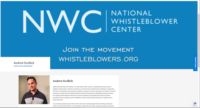Is Faith Misplaced In Mediation?
For many years, insurers have promoted the benefits of mediation as a means of resolving disputes between a design firm and its clients. We recently surveyed senior professionals at 250 design firms and found that no fewer than 40% of respondents who had used mediation to resolve a dispute considered the outcome unsuccessful. Is our confidence in mediation misplaced? Have we oversold its benefits?
I don’t believe so. Having seen thousands of design professionals looking down the barrel of professional liability claims, I can attest that the vast majority of disputants who go to mediation ultimately achieve a settlement. The oft-touted benefits of mediation over protracted litigation absolutely ring true. However, it is possible these benefits have been promoted so often that design firms have unrealistic expectations.

SCHWARTZ
It's worth recapping the benefits of mediation. Mediation saves anywhere from 20% to 75% in claim and legal defense costs. It wraps up in less time and eats up far fewer firm resources than litigation.
It is far less adversarial than a courtroom face-off. If your aim is to preserve a client relationship, you and your attorney can script a presentation with that in mind before you sit down with a neutral third-party. Mediation proceedings and settlements are confidential, so professional reputations are shielded from the glare of open court.
Mediation also opens the door to creativity. Rather than a monetary settlement, the parties might agree that the design professional will provide complimentary services to resolve the matter.
Most compelling of all, mediation provides an opportunity to avoid the vast unpredictability of the legal system. You may feel your case is airtight, but what if the jury does not see it that way or your case takes a wrong turn? Unpleasant litigation surprises—in which damages estimated at a few million suddenly balloon to tens of millions—aren’t unusual.
Thus, mediation is often the best path to settling disputes.
But it is by no means trouble-free. Before it can be determined whether mediation even makes sense, a case must be analyzed and understood so that a reasoned approach to settlement valuation can be made. While a design professional and its insurer are typically desirous of resolving a matter, no one wants to pay more than the claim is worth. Mediation can mean fairly robust discovery procedures or informal but comprehensive information exchange. Close collaboration among the design professional, its attorney and its insurer are essential up to and through the mediation process, just as it is during litigation.
Before going down the mediation path, everyone must have a realistic picture of the potential outcomes. This preparation requires straight, unglossed discussion with counsel and your insurer about the process and potential scenarios that could result. You may have done nothing wrong, but you still need to accurately weigh the likely cost of proving your case in court as opposed to the most likely outcome of a mediated settlement.
If mediation gets the green light, the choice of mediator is pivotal to its success. Some matters call for a legal scholar or conciliator, others a technical expert or “head banger.” What you always need is a mediator that all parties will respect.
There must be a well-thought-out mediation strategy. Often you need to restrategize on the fly as mediation moves forward and you sense how convincing (or not) your position is to the mediator or the adversary. Plaintiffs may have unrealistic expectations and be unwilling to acquiesce to a reasonable settlement. Conversely, it may become clear that your case is not as strong as you thought and you may want to cut your losses. You need to know when to forge ahead with settlement, and when to pack up your briefcase and head to trial. Even if you don’t succeed through mediation, you’ve spent a day learning the other side’s positions.
Firms must be prepared for disputes and these days clients feeling the economic heat are more likely than ever to sue, which means taking off the rose-colored glasses. Mediation is no magic bullet, but it remains the best way to protect your reputation and finances when facing a claim.
Mediation may result in saving on the average but this ignores the fact that the respondents were talking of their exxperience and not the average. In addition while mediation may resu...
With slow economic conditions, surveys have shown claimants are more willing to file claims more aggressively and for smaller amounts. Effective methods are needed to resolve disputes. ...
Based on the findings of a recent ACEC survey of firms, when upfront negotiation is not successful between the parties, which was used 56% of the time, mediation was the next best option and used 24% as the method of resolving disputes. As you mention, litigation is a costly and last course of action with only 2% of claims resolved this way.



